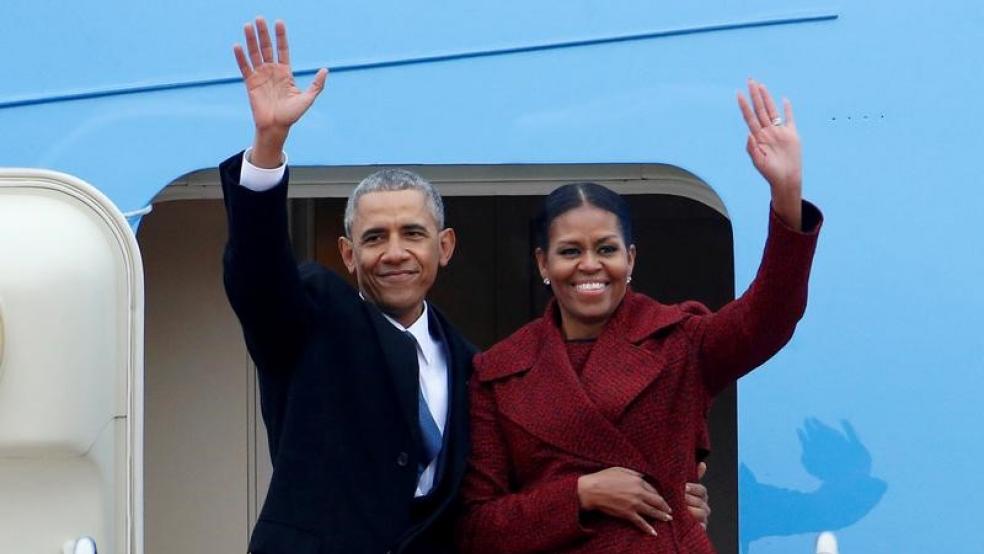The Republican chairs of the House and Senate Budget Committees were sharply criticized last week when they announced that they would not even give President Obama the courtesy of a hearing on his budget request, which was released this morning. The break in tradition was unexpected, but given the content of the document rolled out by the White House today, perhaps not surprising.
The Presidential budget request is, by its nature, a political document. It reflects the priorities, principles, and beliefs of the administration, but it carries little real legislative weight. Even when the White House and the Congress are controlled by the same party, legislators don’t surrender their control of the purse strings to the occupant of the Oval Office. When opposite parties control the executive and legislative branches, budgets are ritually declared dead on arrival.
Related: Obama Reveals Record $4.1 Trillion Budget as Congress Gears Up for a Fight
The record $4.1 trillion request sent to Congress today, however, submitted by a lame duck president to a Congress that has no incentive to work with him, is less an effort to influence lawmakers in their 2017 budget deliberations than to express a vision of the future. Specifically, a future as envisioned by Democrats.
“[T]his Budget is not about looking back at the road we have traveled,” President Obama writes in his opening message. “It is about looking forward. It is about making sure our economy works for everybody, not just those at the top. It is about choosing investments that not only make us stronger today, but also reflect the kind of country we aspire to be—the kind of country we want to pass on to our children and grandchildren. It is about answering the big questions that will define America and the world in the 21st Century.”
In a media briefing Tuesday afternoon, Office of Management and Budget director Shaun Donovan tried to preemptively shut down the idea that the budget was anything other than a serious legislative proposal.
“It’s tempting to adopt the conventional wisdom that a president’s final budget isn’t relevant. But I think the conventional wisdom is wrong. With many final year budgets you either see an administration dramatically trim its sails and dial back on ambition, or you see a budget that is solely a vision document, with little that is relevant to the debate.
Related: Sharp Divide Over Spending and the Debt Could Renew Budget Warfare
“This budget falls in neither of those camps.”
To support his case, he said that there are proposals in the budget that both Republicans and Democrats can agree on. However, in the 150-plus pages of the document, the selection was skimpy: cybersecurity efforts, the president’s “moonshot” proposal to cure cancer, measures to reduce opioid addiction, and some expanded tax credits.
From the get-go, it’s clear that the document isn’t meant to appeal to Republican lawmakers. The very first section is dedicated to taking steps to slow global warming – a phenomenon that large segments of the GOP deny is a made-made phenomenon or even exists. From doubling investment in clean energy technology to increasing federal protections for the water supply, the proposals are the very type of thing that Republican leaders in Congress object to on principle.
A centerpiece is a “21st Century Clean Transportation Plan” that would be funded by a $10.25 surcharge on every barrel of oil sold in the country – a plan with no more chance of gaining Republican support than a scheme to give President Obama a third term in office.
Related: Congress Fumbles Again on Funding for Flint Water Crisis
It moves on to suggest expanded aid for the needy, for students, and for workers, coupled with higher taxes on the wealthy and a fee that would extract more than $10 billion per year from the largest financial institutions in the country.
The budget offers no alternative to steadily increasing federal debt, although it does suggest a flattening of the growth rate. As Council of Economic Advisers Chairman rather artfully put it, the plan places the federal debt “on a stabilized non-declining path.”
House Budget Committee Chairman Tom Price echoed many of his Republican colleagues with his blistering criticism of the president’s request on Tuesday afternoon.
“Like every one of his previous budgets, President Obama’s newest plan never balances. Ever,” he said in a release. “Like all of his previous proposals, it increases spending by trillions of dollars above what we already cannot afford and takes more money out of the pockets of hardworking taxpayers with no plan to address the key drivers of our debt. Under the president’s vision, what we spend on interest on our national debt by 2022 will surpass that which we spend to protect and defend our nation. This is the same approach we have seen time and time again from this administration that continues to lead America down the same path we have been on for the past seven years: one with fewer jobs, lower wages, less opportunity and less security.”
Related: Here’s How the Top 1 Percent Celebrate Valentine’s Day
Price has said that his committee will produce a balanced budget as an alternative to the president’s request.
However, OMB Director Donovan, in the press briefing, warned against a return to what he called the “mindless fiscal austerity” of previous years in which draconian spending cuts and government shutdowns were part of the budget equation and had a significant negative impact on economic growth.





